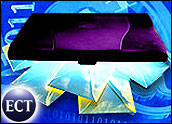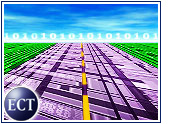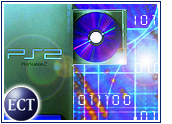
Since IT budgets have been slashed in the economic downturn, many businesses are seeking ways to reduce the burden on overworked staff. One way to do thisis to use a SAN, or storage area network, which reduces data management costs, increases hardware efficiency and improves data recovery capabilities. With networked storage, any user armed with the proper level of access can search for any piece of data stored within an enterprise.
“We’ve had users report anywhere from three times to 100 times improvement in the amount of storage that a given staff could manage,” Gartner research director Bob Passmore told the E-Commerce Times.
According to Passmore, the SAN market was worth US$6 billion in 2001, and networked storage represented an estimated 55 percent of all external storage. By 2006, he said, networked storage likely will represent at least 80 percent of all storage sold. Growth is soaring because capacity keeps increasing as the price of disks falls, enabling production of cheaper, more powerful storage systems.
EMC Is King
As a result of this rapid growth, a highly competitive market has emerged, in which every major server vendor, including Hewlett-Packard, IBM, Dell and Sun, has created its own storage division to compete with third-party storage vendors, such as EMC and Network Appliance.
But EMC, a 22-year-old company based in Hopkinton, Massachusetts, has been able to consistently surpass the server giants and retain its number one spot.
In fact, EMC reported in September that according to research firm IDC, it gained more than 5 percent market share in the second quarter, giving it a total of 30.2 percent of the SAN market.
Switch from Server Vendors
The path toward SAN dominance began in the mid-1990s, according to Gartner’s Passmore, when companies typically purchased storage solutions from their server vendor. However, around that time, EMC, Network Appliance and other third-party storage vendors began to market directly to customers.
“EMC in particular had a good product, and service and support second to no one,” Passmore said. “And they had a very well-trained, large sales force, at a time in the ’90s when all of the server vendors were viewing storage as an accessory you sold after you sold the server.”
Besides sales and service, EMC employs rigorous testing, which allows the company to service its hardware at a level that other storage vendors cannot, EMC director of network storage marketing Paul Ross told the E-Commerce Times.
According to Ross, EMC’s Interoperability Lab tests the company’s products by putting them in real-life situations, as opposed to checking that the hardware works under ideal conditions.
“We test it to find out where it will fail, so we know how far you can take it,” he said. “In the process of doing that, we learn a lot of best practices [in terms of] how to put these things together.”
Teaming Up
However, doing business became more difficult for almost all companies after the IT spending boom of the late 1990s ended. In order to stay on top, EMC bowed to pressure from competitors last fall and formed a storage partnership with Dell. The union opened up new customer doors for EMC as well as pricing benefits for its hardware. For its part, Dell was able to carve out a larger piece of the storage market pie with EMC behind it.
Before the EMC deal, Dell’s storage sales were “a very small portion of our business,” Dell storage systems product manager Gerald Longoria told the E-Commerce Times. But in 2002, quarter over quarter, storage sales alone jumped nearly 70 percent for the Texas-based PC giant, and nearly 1,500 new customers have come into the fold as a result of the partnership.
While EMC traditionally has focused on Fortune 200 companies, Longoriaadded, Dell has been able to provide a gateway into the small and mid-size business market.
Entry-Level Invigoration
EMC also has focused heavily on its entry-level storage solution, the Clariion line, which has helped reinvigorate the market. Dell and EMC announced a joint product, the Clariion CX200, last month — the first time EMC has allowed another company to manufacture one of its products.
Longoria said he expects that more such products will follow, and EMC’s Ross agreed. “It is certainly possible down market that we will call on Dell to be able to manufacture those, and probably … [also] high-end products,” he said.












































Social Media
See all Social Media